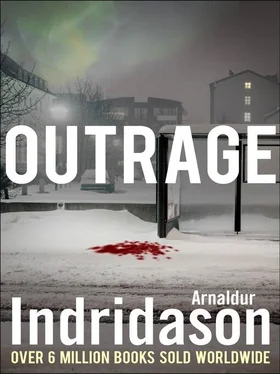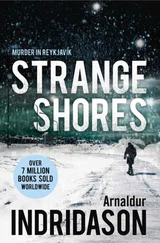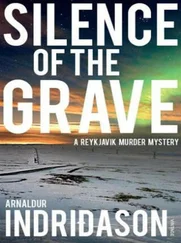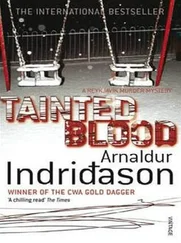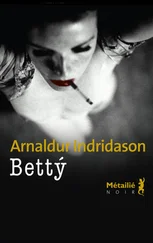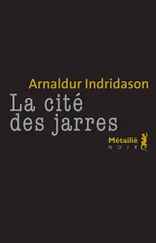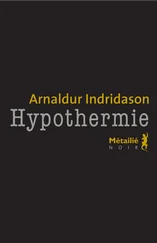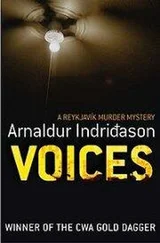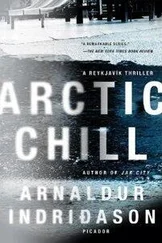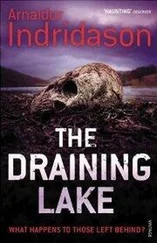Arnaldur Indridason - Outrage
Здесь есть возможность читать онлайн «Arnaldur Indridason - Outrage» весь текст электронной книги совершенно бесплатно (целиком полную версию без сокращений). В некоторых случаях можно слушать аудио, скачать через торрент в формате fb2 и присутствует краткое содержание. Год выпуска: 0101, Издательство: Random House Canada, Жанр: Полицейский детектив, на английском языке. Описание произведения, (предисловие) а так же отзывы посетителей доступны на портале библиотеки ЛибКат.
- Название:Outrage
- Автор:
- Издательство:Random House Canada
- Жанр:
- Год:0101
- ISBN:нет данных
- Рейтинг книги:3 / 5. Голосов: 1
-
Избранное:Добавить в избранное
- Отзывы:
-
Ваша оценка:
- 60
- 1
- 2
- 3
- 4
- 5
Outrage: краткое содержание, описание и аннотация
Предлагаем к чтению аннотацию, описание, краткое содержание или предисловие (зависит от того, что написал сам автор книги «Outrage»). Если вы не нашли необходимую информацию о книге — напишите в комментариях, мы постараемся отыскать её.
Outrage — читать онлайн бесплатно полную книгу (весь текст) целиком
Ниже представлен текст книги, разбитый по страницам. Система сохранения места последней прочитанной страницы, позволяет с удобством читать онлайн бесплатно книгу «Outrage», без необходимости каждый раз заново искать на чём Вы остановились. Поставьте закладку, и сможете в любой момент перейти на страницу, на которой закончили чтение.
Интервал:
Закладка:
‘Adalheidur?’
‘Yes.’
‘I remember her, but I didn’t know her personally. Her brother runs the garage.’
‘The garage?’
‘Yes.’
‘You mean she was Valdimar’s sister?’
‘That’s right. Or half-sister, really. Their mother was nothing but a tart — she used to go with all the seamen back in the old days. They had some name for her, I don’t remember what it was. Something rude. She had those two brats — out of wedlock, of course. Two little bastards. And she drank, too. Died young — relatively young, but burnt out. She was a good worker, though. I used to work with her in the fish factory — a hard-working lass.’
‘Did your son know her? Did he know Adalheidur?’
‘Runólfur? Well, they were about the same age — they were at school together. I only ever saw her when she came to the factory with her mum — always with a runny nose. She wasn’t a healthy kid, rather weak and feeble.’
‘Did Runólfur have a relationship with her?’
‘What do you mean — a relationship ?’
Elínborg hesitated. ‘Were they more than just acquaintances? Was there … was there some other relationship between them?’
‘No, nothing like that. Why do you ask? Runólfur never brought girls here.’
‘Did he know any other girls in the village?’
‘No, not really.’
‘I gather that Adalheidur died a couple of years ago?’
‘She topped herself,’ said Kristjana blankly, running her fingers through her grey hair. Elínborg wondered if she had been dark-haired when she was young. With her brown eyes, it was not unlikely.
‘Who? Adalheidur?’
‘Yes. They found her on the shore, down below the churchyard,’ said Kristjana tonelessly. ‘She’d drowned herself in the sea.’
‘She killed herself?’
‘Yes, certainly looked that way.’
‘Do you know why?’
‘Why? Why the girl did herself in? No idea. I suppose she was unhappy, poor thing. Must have been unhappy, since she did it.’
31
In daylight Elínborg was able to form a clearer sense of the location of the churchyard, which lay to the north of the village, next to the sea. It was enclosed by a low stone wall that was sorely in need of repair and had even collapsed in places, and was partially obscured by the tall, withered winter grass. A picturesque little wooden church, painted white and with a red roof, stood at the end of the churchyard.
The small gate was ajar.
Elínborg found the cross she was looking for easily. Around her were low, mossy gravestones, lying flat on the cold ground, their inscriptions worn and indecipherable, while other stones stood upright amidst the grass, resisting the elements. In among the old memorial stones were simple wooden crosses, like the one that marked Adalheidur’s resting place.
The cross was quite without ornament, identified only with a plain black plaque bearing Adalheidur’s name, the dates of her birth and death, and the inscription Rest in Peace . Elínborg noticed that Adalheidur’s birthday was the date on which Runólfur had been killed.
She raised her eyes. The sky was overcast, but it was a windless day and the sea was mirror-smooth. She looked out along the fjord towards the ocean, to the distant horizon, and felt a sense of peace within herself. The spell was broken by the shrill call of a redwing, which perched briefly on the church tower before flying off into the mountains.
Elínborg realised that she was no longer alone. She glanced up towards the road, and saw the girl in the blue down parka standing there watching her. They stood there for some time without speaking, looking at each other, before the girl set off down towards the churchyard and clambered over the wall.
‘It’s pretty here,’ said Elínborg.
‘Yes,’ the girl agreed. ‘It’s the prettiest place in the village.’
‘They certainly knew what they were doing when they chose this spot for the churchyard,’ said Elínborg. ‘By the way, thanks very much for leaving me here alone last night,’ she added.
‘I’m sorry,’ said the girl. ‘I didn’t know what to do. I still don’t know what I’m doing. When you came back here …’
‘Did you know I’d return?’
‘I wasn’t surprised. I expected you. And I’ve been waiting.’
‘Please tell me what’s worrying you. I can see there’s something you want to tell me.’
‘I saw that you called on Kristjana.’
‘You villagers don’t miss much.’
‘I wasn’t spying on you. I just noticed. She knows all about what happened. Did she tell you?’
‘What did happen?’
‘Everyone knows about it.’
‘About what? And who are you? What’s your name, for a start?’
‘My name’s Vala.’
‘Why all this pussyfooting around, Vala?’
‘I think most people here know what happened, but they’ll never say. And I don’t want to tell, either — I don’t want to get him in trouble. So … I don’t know whether I even ought to be talking to you at all. It’s just that the silence is unbearable. I can’t take it any more.’
‘Why don’t you tell me everything? Then we’ll see. What are you scared of?’
‘No one here talks about it,’ said Vala, ‘and I don’t want to get anyone into trouble.’
‘About what? Get who into trouble?’
‘Everyone keeps their mouth shut and pretends nothing happened — that nothing ever happens here. That everything in the garden’s rosy.’
‘And isn’t it?’
‘No, it isn’t.’
‘So what is it like? Why did you bring me down here last night?’
The girl made no reply.
‘What do you want me to do?’ asked Elínborg.
‘I’m no snitch. I don’t want to tell tales about people. And I don’t want to speak ill of the dead.’
‘No one needs to know what we talk about,’ Elínborg assured her.
Suddenly, Vala changed tack. ‘Have you been in the police for long?’
‘Yes, quite a long time.’
‘It must be a horrible job.’
‘No. Sometimes it is, like when you’re sent to a secretive little place like this. But there are better days. For instance, when I meet a girl like you and I think I can do something for her. Who was it that died who you don’t want to tell tales about?’
‘I never finished secondary school,’ the girl said, evading the question. ‘Maybe I’ll go back and get my qualifications one day, and go to university. I’d like to study something.’
‘Who was Adalheidur?’ asked Elínborg, indicating the simple white cross on the grave.
‘I was just a little girl when it happened.’
‘When what happened?’
‘I was probably about eight at the time, but I never heard anything about it until I was twelve or thirteen. There were all sorts of rumours floating around and I remember they seemed very sad but exciting too, in a weird way. They said she’d gone mad. She was supposed to have got some illness, some mental thing. She only worked part-time, and cooked and cleaned for her brother. She was mysterious, kept herself to herself. She didn’t speak to people, cut herself off from what went on in the village, lost touch with everything and everyone. She had almost no contact with anyone but her brother. He took wonderful care of her after she got ill. Or I thought she was ill, anyway. That’s what they said, when I was a little girl. They said poor Addý wasn’t well. She seemed like a grown woman to me — she was twelve years older. Her birthday’s nearly the same as mine — there’s five days’ difference. She was the same age I am now when it happened.’
‘Did you know her at all?’
‘Yes, we worked together at the fish factory. She was a lot older, of course, like I said, and not easy to get to know — reserved. I was told she’d always been that way, slightly odd. She’d been a loner who kept out of other people’s way, and they left her alone, too. They said she’d been fragile and sensitive. Not someone you would notice. That made her easy prey, I suppose.’
Читать дальшеИнтервал:
Закладка:
Похожие книги на «Outrage»
Представляем Вашему вниманию похожие книги на «Outrage» списком для выбора. Мы отобрали схожую по названию и смыслу литературу в надежде предоставить читателям больше вариантов отыскать новые, интересные, ещё непрочитанные произведения.
Обсуждение, отзывы о книге «Outrage» и просто собственные мнения читателей. Оставьте ваши комментарии, напишите, что Вы думаете о произведении, его смысле или главных героях. Укажите что конкретно понравилось, а что нет, и почему Вы так считаете.
